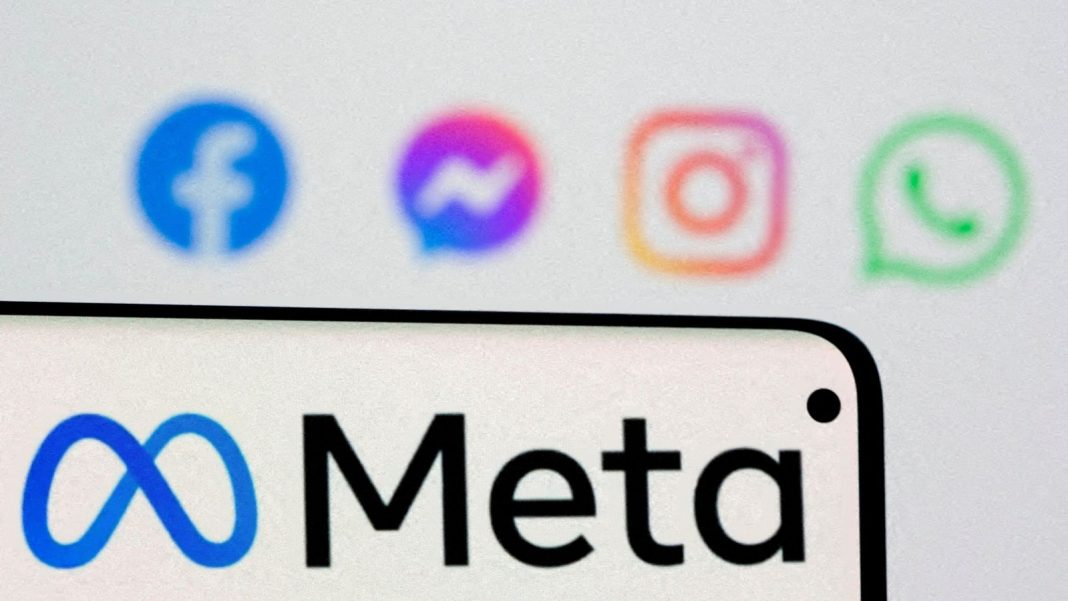Meta is being sued by dozens of states in the US over claims that its social media platforms are intentionally addicting young people and harming their mental health.
The lawsuit, submitted by attorney generals, claims Meta is contributing to a youth mental health crisis by knowingly and deliberately designing features on Instagram and Facebook that addict children to its platforms.
“Meta has harnessed powerful and unprecedented technologies to entice, engage, and ultimately ensnare youth and teens,” the lawsuit, filed in federal court in California, states.
“Its motive is profit, and in seeking to maximize its financial gains, Meta has repeatedly misled the public about the substantial dangers of its social media platforms.
“It has concealed the ways in which these platforms exploit and manipulate its most vulnerable consumers: teenagers and children.”
The states also claim research has associated children’s use of Meta’s social media platforms with “depression, anxiety, insomnia, interference with education and daily life, and many other negative outcomes”.
The lawsuit is a result of a nationwide investigation announced in 2021 by Robert Bonta, the attorney general of California, which looked at how Meta was promoting Instagram to children and young adults “despite knowing that such use is associated with physical and mental health harms”.
Please use Chrome browser for a more accessible video player

2:11
Online victims write to tech bosses
The broad-ranging lawsuit includes the claim that Meta knowingly violated the Children’s Online Privacy Protection Act by collecting data on children under 13 without informing and getting permission from their parents – despite the fact that social media companies ban under 13s from signing up to their platforms to comply with federal regulation.
Meta could face civil penalties of $1,000 to $50,000 for each violation of various state laws.
In addition to this lawsuit’s 33 states – including California and New York – nine other attorneys general are filing in their respective states, bringing the total number of states taking action to 42.
Letitia James, attorney general of New York, said in a statement: “Kids and teenagers are suffering from record levels of poor mental health and social media companies like Meta are to blame.
“Meta has profited from children’s pain by intentionally designing its platforms with manipulative features that make children addicted to their platforms while lowering their self-esteem.”
In a statement, Meta said it shared “the attorneys general’s commitment to providing teens with safe, positive experiences online, and have already introduced over 30 tools to support teens and their families”.
It added: “We’re disappointed that instead of working productively with companies across the industry to create clear, age-appropriate standards for the many apps teens use, the attorneys general have chosen this path.”
Almost all American teenagers use a social media platform, according to the Pew Research Centre, with about a third saying they use social media “almost constantly”.
The cases are the latest in a string of legal actions against social media companies on behalf of children and teens.
Read more:
Facebook might actually benefit mental health, study suggests
Paedophiles using AI to ‘de-age’ celebrities
Meta, ByteDance’s TikTok and Google’s YouTube already face hundreds of lawsuits filed on behalf of children and school districts about the addictiveness of social media.
The dangers of social media for children in particular became a pressing topic in 2021 after former Facebook employee Frances Haugen testified against them before Congress and a UK parliamentary committee.
Please use Chrome browser for a more accessible video player

2:23
‘Molly’s case not unique’ – FB whistleblower
Ms Haugen previously spoke to Sky News about the social media giants’ responsibility to protect children.
“The reality is these platforms can take children from an interest like healthy eating and just by the nature of how the algorithms are designed, push them towards more extreme content,” she said.
Meta owner Mark Zuckerberg previously defended his company over user safety on its social media platforms.
“At the heart of these accusations is this idea that we prioritize profit over safety and wellbeing. That’s just not true,” he said.







